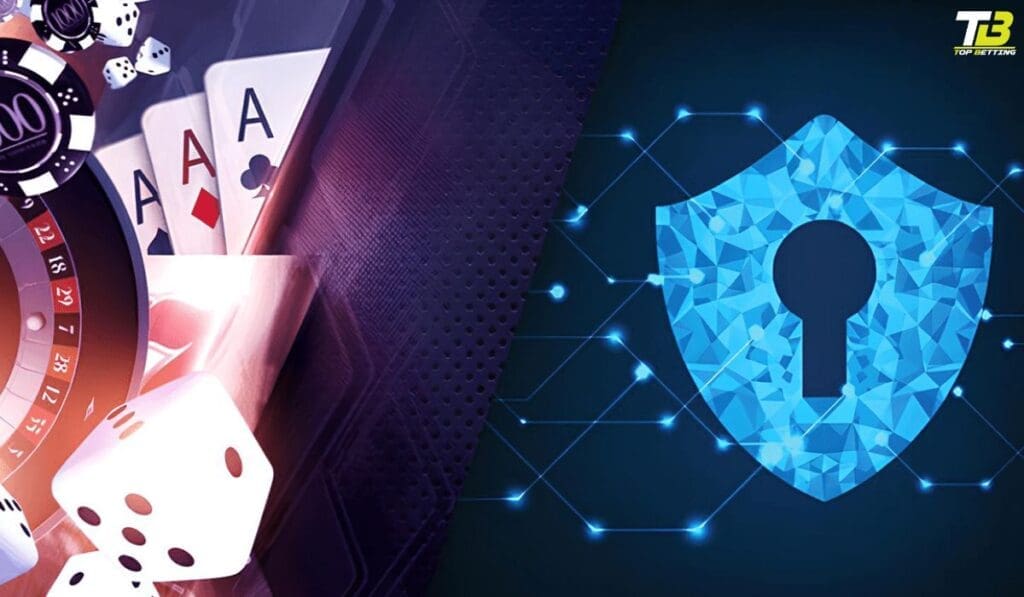
Threats to Cybersecurity in the Casino Industry | An Investigation
Introduction
As technology continues to advance, so does the sophistication of cyber threats, and no industry is exempt from such risks – including the casino industry. In this investigation, we delve deep into the threats to cybersecurity that plague the casino industry and explore the potential consequences of these vulnerabilities. From data breaches to ransomware attacks, the casino industry faces a myriad of challenges that can compromise not only their financial resources but also the personal information of their customers.
With the rise of online gambling platforms and the increasing reliance on digital systems, the need for robust cybersecurity measures has become more crucial than ever for casinos. Join us as we uncover the unique threats faced by this industry and the steps that can be taken to safeguard against them. Whether you’re a casino owner, an avid gambler, or simply interested in the world of cybersecurity, this investigation will provide valuable insights into the complex landscape of cybersecurity within the casino industry.
The Importance of Cybersecurity in the Casino Industry
In today’s digital age, the casino industry relies heavily on technology to operate efficiently and provide a seamless experience for customers. However, with this increased reliance comes a greater vulnerability to cyber threats. Casinos store vast amounts of sensitive data, including financial records, personal information, and even surveillance footage. Without adequate cybersecurity measures in place, this data is at risk of being exploited by cybercriminals.
To ensure the protection of customer information and maintain the trust of their clientele, casinos must prioritize cybersecurity. Implementing strong security protocols, regularly updating software, and conducting thorough risk assessments are essential steps in safeguarding against cyber threats. Additionally, investing in advanced security technologies and partnering with reputable cybersecurity firms can provide an extra layer of protection.
Common Cybersecurity Threats in the Casino Industry
The casino industry faces a wide range of cybersecurity threats, each with its own unique characteristics and potential consequences. One of the most prevalent threats is the risk of data breaches. Cybercriminals often target casinos due to the valuable data they store, such as customer credit card information and personal details. A successful data breach can lead to significant financial losses, reputational damage, and legal implications for the affected casino.
Another common cybersecurity threat in the casino industry is ransomware attacks. Ransomware is a type of malicious software that encrypts a casino’s data, rendering it inaccessible until a ransom is paid. These attacks can disrupt casino operations, leading to downtime, financial losses, and a loss of customer trust. Preventing ransomware attacks requires a multi-layered approach, including regular data backups, employee training, and robust cybersecurity solutions.
Case Studies of Cybersecurity Breaches in Casinos
To understand the real-world impact of cybersecurity breaches in the casino industry, let’s examine a few notable case studies. In 2014, the Las Vegas Sands Corporation, one of the largest casino operators in the world, fell victim to a sophisticated cyber attack. The breach resulted in the compromise of sensitive employee data and the temporary shutdown of the company’s websites.
Similarly, in 2017, the personal information of over 30,000 customers of an online casino was exposed due to a database misconfiguration. This incident not only put the affected customers at risk but also highlighted the importance of proper security measures and regular audits to identify vulnerabilities.
These case studies serve as a stark reminder of the potential consequences of cybersecurity breaches in the casino industry. They underline the need for proactive cybersecurity measures and continuous monitoring to mitigate risks and protect sensitive data.
The Impact of Cybersecurity Breaches on the Casino Industry
The impact of cybersecurity breaches on the casino industry goes beyond financial losses and reputational damage. A successful attack can result in a loss of customer trust, leading to decreased patronage and a tarnished brand image. Casinos rely on the trust and loyalty of their customers to thrive, and any breach of that trust can have long-lasting effects.
Furthermore, cybersecurity breaches can also have legal implications for casinos. Data protection laws and regulations, such as the General Data Protection Regulation (GDPR), require organizations to protect the personal information of their customers. Failure to comply with these regulations can result in severe penalties and legal consequences.
To mitigate the impact of cybersecurity breaches, casinos must not only invest in robust cybersecurity measures but also have a comprehensive incident response plan in place. Prompt detection and response can minimize the damage caused by an attack and help restore customer trust.
Regulations and Standards for Cybersecurity in the Casino Industry
Recognizing the importance of cybersecurity in the casino industry, regulatory bodies have implemented various regulations and standards to ensure the protection of customer data. These regulations outline the minimum requirements that casinos must meet to safeguard against cyber threats.
For instance, the Nevada Gaming Control Board has established regulations that require casinos to implement specific cybersecurity controls and conduct regular audits. Similarly, the United Kingdom Gambling Commission has issued guidelines for online casinos to ensure the security of customer information.
Compliance with these regulations is not only a legal requirement but also a way for casinos to demonstrate their commitment to cybersecurity and earn the trust of their customers. By adhering to industry standards, casinos can enhance their cybersecurity posture and reduce the risk of cyber attacks.

Best Practices for Cybersecurity in the Casino Industry
To strengthen cybersecurity defenses, casinos can adopt several best practices. Firstly, conducting regular vulnerability assessments and penetration testing allows casinos to identify and address potential weaknesses in their systems. This proactive approach enables them to stay one step ahead of cybercriminals.
Secondly, implementing multi-factor authentication (MFA) can significantly enhance security. By requiring users to provide multiple forms of identification, such as a password and a unique code sent to their mobile device, the risk of unauthorized access is greatly reduced.
Furthermore, employee training and awareness programs are crucial in promoting a culture of cybersecurity within casinos. Educating employees about the latest threats, phishing techniques, and best practices for data protection can empower them to become the first line of defense against cyber attacks.
A Casino Ransomware Alert
Recently, a successful cyberattack forced the closure of 14 casinos located around Canada. The numerous cyberattacks against casinos as a result of the crisis between Russia and Ukraine are thought to be the work of Russian state threat actors. In addition to forcing system shutdowns, successful cyberattacks against casinos have also resulted in ransom demands and the theft of private consumer information for sale on the dark web.
Cyberattacks on casinos are not new, particularly in the gaming center of Las Vegas. At least ten assaults occurred against Vegas casinos between 2014 and 2022, preventing them from operating to their full capacity until system repair was finished. This resulted in serious financial and reputational harm for these businesses.
Cybersecurity Training and Awareness Programs for Casino Employees
Casino employees play a vital role in maintaining cybersecurity within the industry. From IT staff responsible for network security to frontline employees handling customer data, everyone must be trained on cybersecurity best practices.
Providing comprehensive training that covers topics such as password hygiene, identifying phishing emails, and the importance of data protection is essential. Regular refresher courses and ongoing awareness programs can reinforce these practices and keep employees updated on the latest threats.
Additionally, casinos should establish clear protocols for reporting suspected security incidents and provide channels for employees to seek guidance or report potential vulnerabilities. By fostering a culture of cybersecurity awareness, casinos can create a united front against cyber threats.

The Role of Technology in Preventing Cybersecurity Threats in Casinos
While casinos face numerous cybersecurity threats, technology also plays a crucial role in preventing and mitigating these risks. Advanced security solutions, such as intrusion detection systems and firewalls, can help identify and block malicious activities in real-time.
Artificial intelligence (AI) and machine learning algorithms can analyze vast amounts of data to detect patterns indicative of cyber attacks. These technologies can provide early warning signs and enable proactive response measures.
Moreover, the adoption of blockchain technology can enhance the security and transparency of financial transactions within the casino industry. By leveraging decentralized ledgers, casinos can reduce the risk of fraud and ensure the integrity of their financial operations.

Conclusion and Recommendations for Enhancing Cybersecurity in the Casino Industry
The casino industry faces a constant barrage of cyber threats that can have far-reaching consequences. To protect their operations, customers, and reputation, casinos must prioritize cybersecurity measures.
By implementing robust security protocols, adhering to industry regulations, and investing in advanced technologies, casinos can significantly reduce their vulnerability to cyber attacks. Additionally, comprehensive employee training programs and a proactive approach to cybersecurity can create a strong defense against evolving threats.
As the casino industry continues to evolve and embrace digital innovations, the importance of cybersecurity cannot be overstated. By taking proactive steps to enhance cybersecurity practices, casinos can create a safe and secure environment for their customers and ensure the longevity of their business.












